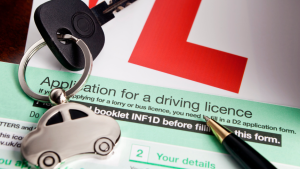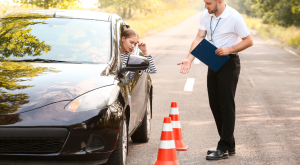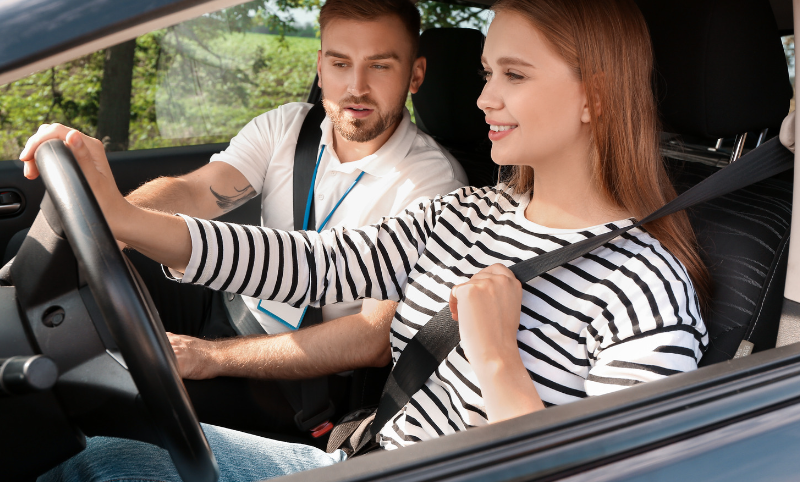Are you looking to expand your driving qualifications in the UK? If you want to drive larger passenger vehicles, such as minibuses or buses, then obtaining a D1 licence is essential. In this step-by-step guide, we will walk you through the entire process of getting a D1 licence in the UK. From understanding what a D1 licence is and why it’s valuable to exploring the training courses available and the associated costs, we’ve got you covered. Whether you’re a professional driver or simply want to enhance your driving skills, this blog will provide all the information you need to successfully obtain your D1 licence. Get ready to hit the road with confidence!
What is a D1 Licence?

D1 is a driving licence category in the UK that allows individuals to legally drive passenger and wheelchair accessible vehicles weighing over 3.5 tonnes. If you obtained your driving licence before January 1st, 1997, you will already have this category included on your licence. However, if you passed your test after this date, you will need to apply for the D1 category separately.
To obtain a D1 licence, you will need to meet certain requirements, including passing a medical examination and completing a theory and practical test specific to driving larger vehicles. It is important to note that there are additional restrictions and regulations that apply when driving vehicles in the D1 category, so it is essential to familiarize yourself with these before hitting the road.
How to Get D1 Licence in UK?

To get a D1 license in the UK, you need to apply for a minibus provisional entitlement, also known as a passenger carrying vehicle (PCV) license. You can apply for this if you want to drive a minibus commercially or if certain conditions don’t apply.
You can request a D1 form from the DVLA form ordering service or from most Post Offices. You can also request a D1 form online . Once you have the form, fill it out correctly and send it to the address on the form along with the required fee.
Is it Hard to Get D1 Licence?
There are several D1 Licence Training Courses available in the UK. One of them is offered by Sunderland LGV Driver Training which is the best rated driving instructors across the North East of England for light/heavy goods vehicles, buses and car and trailer licences. They offer courses in the following categories: B + E, C1, C, C + E, D1, D, D1 + E and CPC.
Another option is Pure Driving which offers comprehensive D1 and D1+E courses designed for those who plan to drive a minibus for non-commercial purposes. One, two and three day courses are available, each of which finishes with the test.
D1 Licence Training Courses in the UK

Obtaining a D1 license can be a costly endeavour. On average, driving schools charge around £60 per hour for D1 license training, including VAT. However, it’s important to note that the total cost will depend on several factors, such as the number of training hours required, any additional fees for theory tests or medical examinations, and the specific driving lessons and school you choose.
It’s always a good idea to contact local driving schools and inquire about their pricing and packages to get a better understanding of the overall cost involved in obtaining your D1 license.
How Much Does It Cost to Get a D1 Licence?

If you want to drive a commercial vehicle, you will need to obtain a D licence. A D licence allows you to drive any vehicle in Classes 1 through 5. This includes vehicles such as buses, tractor-trailers, and trucks. There are many advantages of having a D licence, including:
- Increased Job Opportunities: With a D licence, you will have access to many more job opportunities. You will be able to apply for jobs that require the ability to drive a commercial vehicle.
- Higher Salary: Jobs that require a D licence often come with a higher salary than those that don’t. This is because driving a commercial vehicle is considered to be a skilled position.
- Prestige: Having a D licence can give you a sense of prestige. It shows that you have the skills and knowledge required to operate a commercial vehicle safely.
Obtaining a D licence requires passing both written and practical exams. The written exam covers topics such as traffic laws and regulations. The practical exam tests your ability to safely operate a commercial vehicle.
What Are the Advantages of Having a D1 Licence?
Getting a D1 driving license in the UK is not as tough as it may seem. While there are certain requirements and processes to follow, obtaining a D1 license can be relatively straightforward. To qualify for a D1 license, you must be at least 24 years old and have held a full car (Category B) driving license for at least two years. You will also need to pass a medical examination and complete both theory and practical tests specific to driving larger vehicles, such as minibusses or buses. By preparing adequately and familiarizing yourself with the necessary requirements, you can increase your chances of successfully obtaining a D1 license in the UK.
Conclusion
In conclusion, obtaining a D1 licence in the UK requires going through a step-by-step process and completing the necessary training courses. It is essential to understand the requirements, costs, and advantages of having a D1 licence before embarking on this journey. While it may require effort and dedication, it is not necessarily difficult to obtain a D1 licence as long as you meet all the criteria and undergo the necessary training. With a D1 licence, you gain the ability to drive minibuses for various purposes, opening up opportunities for employment or personal use. So, if you’re looking to expand your driving capabilities and explore new possibilities, consider obtaining a D1 licence in the UK.









